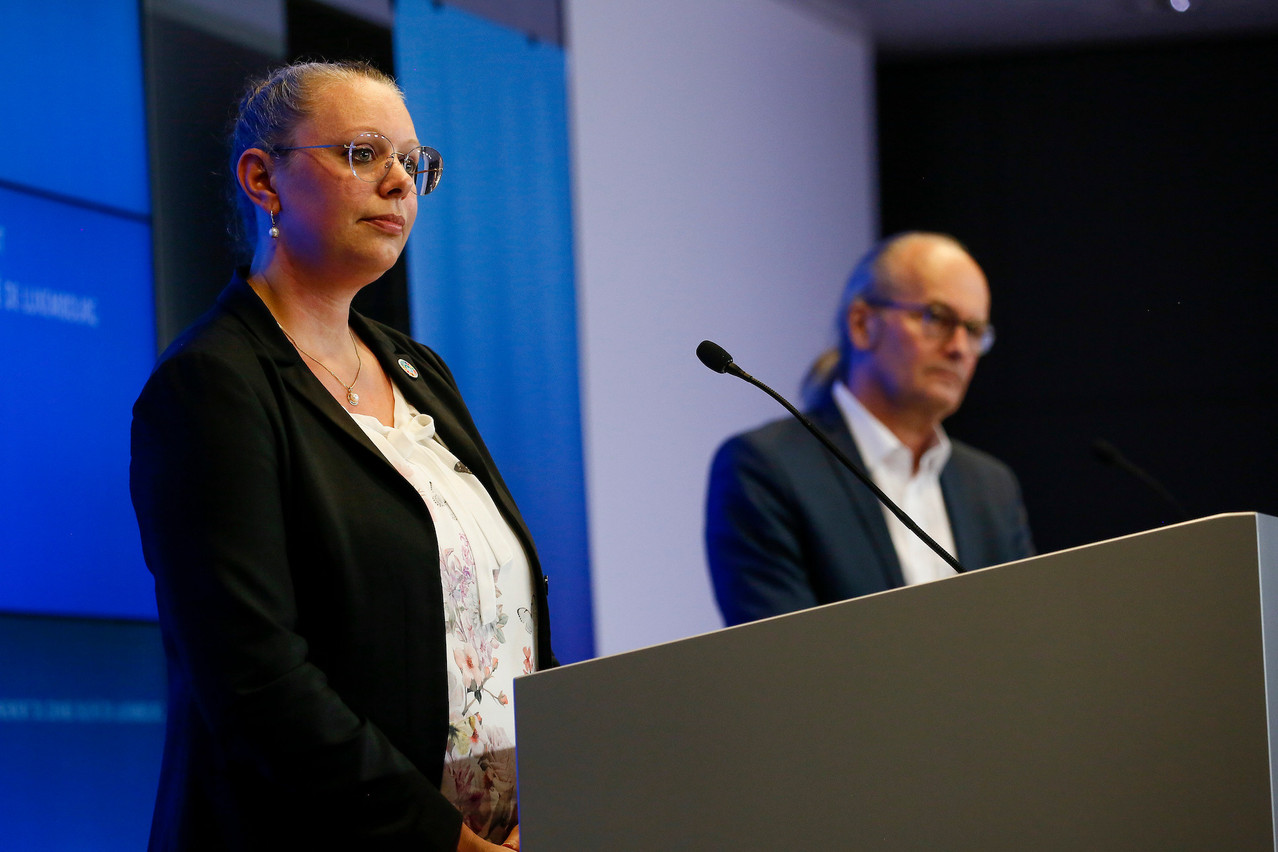The increase in droughts and, above all, the terrible floods of last July have made it clear that Luxembourg is not being spared the impact of climate change. This is a direct consequence of the rise in temperature that has hit the country: temperatures rose by 1.6°C between 1861-1890 and 1991-2020 - more than the global increase of 1.1°C according to the IPCC).
Nevertheless, the déi Gréng ministers for the environment, Carole Dieschbourg, and for energy, Claude Turmes, appeared to have reason to be pleased when they presented the first report on the country's climate and energy policy on Tuesday morning, which indicated that Luxembourg is on track to meet its greenhouse gas emissions reduction target.
The 7.86 million tonnes of CO2-equivalent emitted in 2020 in the grand duchy is a reduction of 22% compared to 2005. According to EU regulations--in particular Directive 2006/49/EC--the reduction should be 20% over the same period.
The pandemic effect
So mission accomplished? Nothing is less certain, as the pandemic has passed. It is the reduction in GHG emissions linked to transport--a direct consequence of the 2020 pandemic lockdown measures--that is the main cause of this half-hearted victory.
In fact, compared to previous years, the trajectory of GHG emissions in the country in no way suggests such a decrease. On the contrary, emissions in the country have risen steadily since 2016, from 8.5 million tonnes of CO2-equivalent to 9.2 in 2019.
With the economic recovery, the risk of a sharp rise in emissions in 2021 is very real. "Probably, emissions will increase a little," Claude Turmes acknowledged with a grin. "But what you have to understand is that we have managed to put in place in one year a battery of laws and instruments to put the Luxembourg economy on the road to climate neutrality.” From this point of view, "we are among the best in the class", the minister stated.
Redoubling our efforts
This will not be enough to achieve climate neutrality by 2050, and even a 55% reduction in GHG emissions by 2030. Looking at the curves, efforts will indeed have to be redoubled.
Disparity between sectors
And more so in some sectors than in others. Last July, the government defined the objectives to be reached for the sectors established in the climate law. And some sectors seem to be doing better than others.
While transport - by far the biggest emitter of GHGs - has already started to decline, this is not the case for other sectors. The waste package will have to play its part in a sector that has not seen a decrease since 2005.
Emissions in the agriculture sector have increased. A very difficult industry to reform, the reduction target here is only 20% . "We had to find a compromise that would force the sector to move but also one that would be realistic in terms of the raw material of agriculture in the country, which is animals--cows are not machines,” Turmes explained.
In the building sector, where emissions have not changed in 15 years, a "game changer" could make it possible to achieve a 64% reduction by 2030: the law requires each new building to be "zero carbon". "There is no other law, in any country in Europe, that goes in this direction in such a consistent manner," said the minister for energy, who added that the industrial revolution of the heat pump could also play a very strong role in the sector.
Voluntary efforts
But in the future, to have a chance of achieving the objectives, three areas will have to evolve considerably, according to Claude Turmes. Firstly, industry will have increase its efforts to replace fossil fuels with electricity or green hydrogen.
On the other hand, the logistics sector, which emits a lot of carbon, could evolve thanks to electric or hydrogen trucks, according to the minister. Finally, if incentives are granted for the thermal renovation of buildings, the bureaucracy that surrounds it should be reduced.
In any case, Turmes admits that the work still needed to be done is "titanic” . And it will have to be carried out urgently: "We have no more time to lose, we have 10 years to turn things around,” the minister warned.
This article was first published by and has been translated and edited by Delano
